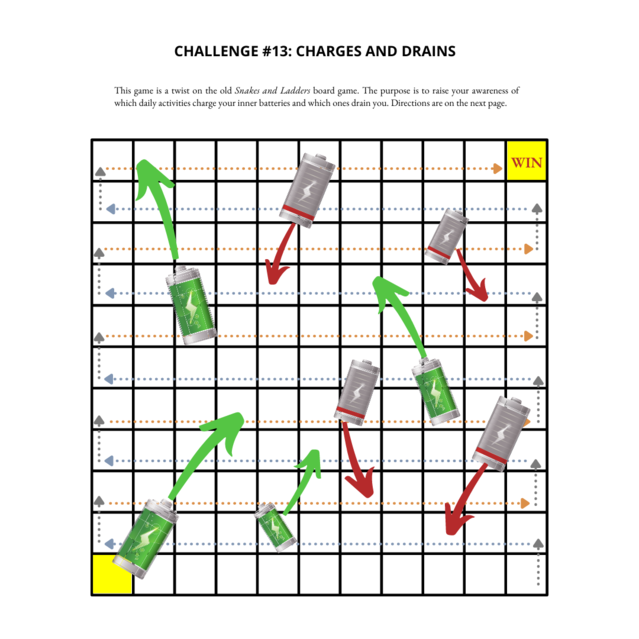Resilience
Why Conflict Tools Are Not Enough
Why do our conflict tools escape us when we need them most?
Posted September 2, 2022 Reviewed by Ekua Hagan
Key points
- Many of us know the building blocks of deep listening and constructive conversations but cannot access them when needed.
- On the contrary, when we are depleted, stressed, scared, or angry, we often act from our "lizard brains" and escalate our conflicts.
- To be able to access our "wise brains" instead, we need to cultivate and grow our resilience.
- While resilience takes time to cultivate, we can begin with awareness of what charges and drains us.
Over the past two decades of helping people improve their conflict and communication skills, I have had the honor of working with many folks who already know the building blocks of constructive conversations and conflict de-escalation, including:
- Pause before you speak (or press send).
- Prepare for a difficult conversation, even if briefly.
- Look for common ground.
- Tell people what you are hearing instead of telling them to “calm down.”
- Address tiny misunderstandings before they bloom into big conflicts.
- Approach people with an even tone that is not accusatory or aggressive.
- Be curious rather than judgmental when you encounter a difference in opinion.
Despite having most of these tools, and picking up more during our time together, my workshop participants consistently told me that they had trouble putting their skills into practice in tough situations.
As I explored this truth over time, I came to an uncomfortable conclusion: Most of us cannot access our conflict toolbox when we are depleted.
In other words, most of us cannot get a hold of our tools when we are run down, stressed, triggered, reactive, scared, or angry.
Instead, we often create more havoc and make the situation worse by acting impulsively and using our Lizard Brain (our Fight-Flight-Freeze-Fawn) instead of our Logic Brain (our wisdom).
How do we unlock our toolboxes?
- How do we get out of the depletion loop long enough to speak and act from our wise selves?
- How do we charge our batteries enough to stay curious, flexible, and responsive when life throws hardships and stressors at us?
We begin to grow our resilience.
- Resilience is our ability to overcome adversity, actively recharge our batteries, face life with curiosity, and flexibly adapt to changing circumstances.
- Resilience is not the same as happiness or grit. Resilience is not about a positive mood, self-care, or pushing through and enduring. It is about recovering from hardships more quickly, moving toward our goals, finding optimism, and being less reactive to stressors.
- Resilience and conflict are connected. Resilience helps us handle conflicts, difficult conversations, and "access" our communication skills.
- Science has shown that resilience can be cultivated and grown with practice and support.
How do we grow our resilience?
In my experiments with growing my own resilience, and facilitating resilience workshops for the past two and a half years, I have found that people do well when they focus on cultivating a combination of:
- Purpose (dreams, goals)
- Possibility (optimism, curiosity)
- Practices (gratitude, mindfulness)
- People (positive connections)
Where does one start?
The resilience pathway above takes time and may seem daunting at first. However, the Charges and Drains activity below is a great place to start.
In many ways, resilience is about charging our batteries and decreasing our drains.
As we become aware of what practices and people feed our bodies and souls, we can slowly start adding more of these into our lives. Eventually, with support, we can also start weeding out activities and habits that keep us stuck or drained. However, awareness is a powerful first step.

Charges and Drains instructions
This game comes from Dr. Shpungin's Resilience Playbook, and is a twist on the old Snakes and Ladders board game. The purpose is to raise your awareness of which daily activities charge your inner batteries and which ones drain you.
Step 1: Examine your day. For each day that you choose to play this game take a moment to examine the choices you made in terms of charges and drains. You can do this last thing at night or first thing in the morning for the day before. Doing it 3-4 times per week, for one or more weeks, is recommended. This activity is best done as an Exchange with another person or small group, in which you all share your Charges and Drains and learn from each other.
Step 2: Pick one or more charges. This can be something that helped you feel more optimistic, grateful, grounded, connected, or clear. It can also be something that nurtured your spirit. Jot down the charge in a blank box next to a battery icon. Ex: "4/20/22: Went for a long walk in the park with Cris."
Step 3: Pick one or more drains. This is something that brought you down, or led to you feeling tired, empty, sad, hopeless, trapped, or stuck. Jot down the date and a shorthand of the event in the blank box next to a battery icon (e.g., "4/20/22: Stayed on phone with Jo past my comfort point.").
Step 4: Share with your resilience buddy or small group. After you complete the challenge, share with your buddy or team to increase learning and accountability — via a text thread or email. Share why it was a drain or a charge. (E.g., "Taking time to walk clears my mind and also refreshes my body. I often resist it but when I do it, it's usually a charge."
If you want to write about multiple charges and drains, go for it. The minimum is one charge and one drain per day. Writing it down helps you look for patterns later.
Step 5: Look for patterns. At the end of each week during which you play this game, take time to look for any patterns in your charges and drains and share your discoveries with your team. Think about what choices and agency you have to increase the charges and reduce the drains.
Ex: "I noticed that a lot of my drains come from meetings. I need to think about how to make these less draining for me. I also noticed that creating a boundary with people is doubly helpful because it's like getting rid of a drain, and also creating a charge at the same time—because it shows self respect for me."
See The Resilience Playbook for more activities like the one above.
It is never too late or too early to begin growing our resilience. If you are ready to access your Conflict Toolbox and Wise Self more often, give it a try.
References
Shpungin, Elaine (2022). The Resilience Playbook. Esfira Press.




